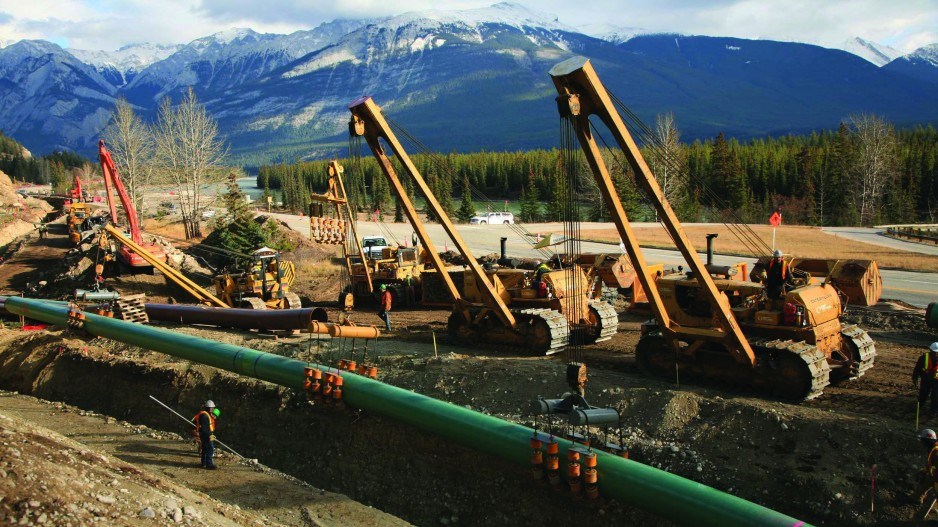B.C. does not have the authority to stop the flow of crude oil through the federally owned Trans Mountain (TMX) pipeline from Alberta to Burnaby, B.C.’s Court of Appeal ruled May 24.
Premier John Horgan’s NDP government last year asked the court to rule on the constitutionality legitimacy of amendments to the provincial Environmental Management Act, which would have restricted the flow of diluted bitumen from Alberta through B.C.
In a unanimous decision of five judges, the court ruled the legislation was aimed at the $7.4-billion TMX pipeline expansion project.
That plan, initially proposed by U.S.-based Kinder Morgan which later sold the pipeline to Ottawa, would have seen a twinning of the old pipeline and a significant increase in crude flow to the company’s Westridge dock in Burnaby.
“Even if it were not intended to ‘single out’ the TMX pipeline, it has the potential to affect (and indeed ‘stop in its tracks’) the entire operation of Trans Mountain as an interprovincial carrier and exporter of oil,” said the 66-page ruling written by Justice Mary Newbury.
She said unless a pipeline is wholly contained in a province, it is subject to federal jurisdiction.
As TMX is interprovincial, she said, it becomes a federal undertaking and falls under the exclusive power of Parliament, not the Victoria Legislature.
Newbury said the provincial law “would prohibit the operation of the expanded Trans Mountain pipeline in the province until such time as a provincially appointed official decided otherwise.
“This alone threatens to usurp the role of the NEB (National Energy Board), which has made many rulings and imposed many conditions to be complied with by Trans Mountain for the protection of the environment.”
Newbury said the project is not just a British Columbia one and affects the country as a while.
TMX has been a lightning bolt for controversy. Activists fear the increase in oil flow meant an increase in coastal tanker traffic and increased risk of maritime oil spills.
Horgan has earlier said his government has already issued 309 permits needed for the pipeline expansion, and has no plans to obstruct the pipeline through permitting.
He said B.C. has not disrupted or delayed the permitting process.
“At no time over the past two years have we disrupted or delayed the permitting process in any way beyond those that would be required to protect the interests of British Columbia,” Horgan said.
Citing data from 2017 and 2018, Horgan has said refined fuel products flowing on the TMX pipeline has decreased from 37 per cent to 27 per cent, because the amount of oil for export increased from nine per cent to 21 per cent.
As Business in Vancouver has reported, an unusually high number of oil tanker shipments through Vancouver to Asia, especially China, took place in 2018.
That likely means that imports of refined product from Washington, at much higher costs, have likely increased.
“So there is less refined product coming into the Lower Mainland now with the existing pipeline and no commitment from TMX to do something about that with the twinning of the pipeline,” Horgan said.
Trans Mountain says it is a neutral conveyor, and that it is up to shippers who have pipeline allocations to decide what to ship on the pipeline.
When the court reference was requested, the Canadian Association of Petroleum Producers (CAPP) called the move discriminatory and redundant and "just another stall tactic to tie the project up with more red tape after Ottawa gave in the green light 18 months ago."
CAPP said Ottawa needed to exercise its constitutional authority and move the project forward.
— Jeremy Hainsworth, Glacier Media



